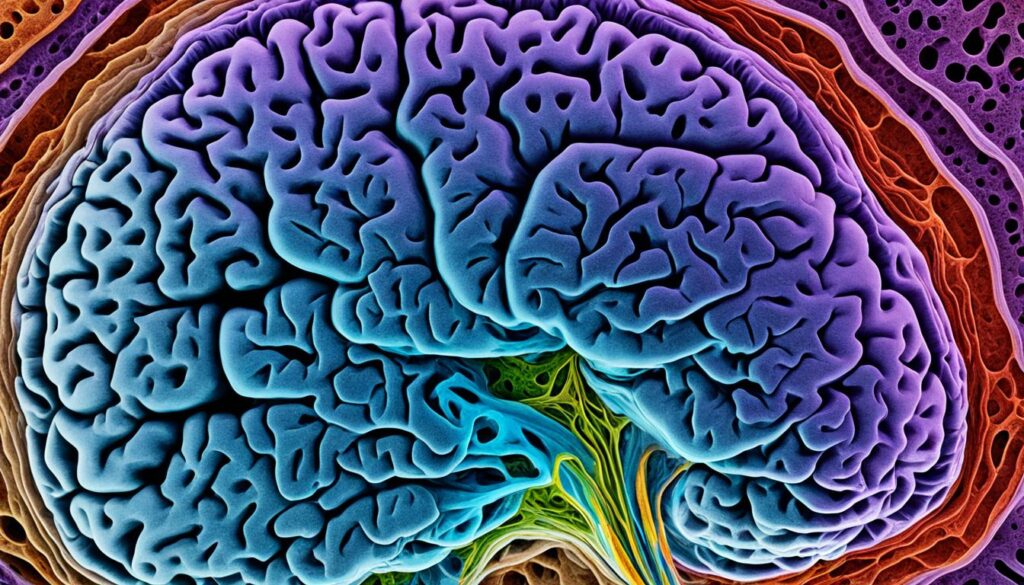Table of Contents
ToggleMedically reviewed by Dr Chandril Chugh,
Renowned Neurologist and American Trained Specialist
Today we will talk about a widely debated topic: Can stress cause brain tumors? In this article, we aim to uncover the truth behind this myth by delving into scientific research and providing you with evidence-based insights.
Stress is a common experience that affects us all, but its potential link to brain tumors has generated much speculation and concern. Here, we will analyze the existing evidence and separate fact from fiction, allowing you to make informed decisions about your health.
Throughout this journey, we will examine the different types and causes of brain tumors, explore the impact of stress on the body and mind, and critically evaluate scientific studies on the stress-brain tumor connection. By the end of this article, you will have a clearer understanding of the true relationship between stress and brain tumors.
Join us in unraveling this intriguing myth and gaining valuable insights into the impact of stress on our well-being. Together, let’s explore the fascinating world of brain tumors and stress-related health concerns.
Understanding Brain Tumors: Types and Causes
Before we explore the possible connection between stress and brain tumors, it is essential to grasp the various types of brain tumors and the factors that contribute to their development. By understanding these classifications and causes, we can gain valuable insights into the complexities of brain tumors and their potential triggers.
Types of Brain Tumors
Brain tumors can be broadly categorized into two main types: primary and secondary tumors.
1. Primary Brain Tumors:
Gliomas : Arise from glial cells in the brain and can be classified as astrocytomas, oligodendrogliomas, or ependymomas.
Meningiomas: Grow from the meninges, the protective membranes surrounding the brain and spinal cord.
Neuromas: Form from nerve tissue and are often benign.
Pituitary adenomas: Develop in the pituitary gland, which regulates hormone production.
2. Secondary Brain Tumors: Also known as metastatic brain tumors, these tumors spread to the brain from cancerous cells in other parts of the body. They are not derived from brain cells themselves but can have a significant impact on brain health.
Causes of Brain Tumors
The exact causes of brain tumors are still being studied, and in many cases, the cause remains unknown. However, various factors have been identified as potential contributors to the development of brain tumors. These can include:
- Genetic factors
- Exposure to ionizing radiation
- Family history of brain tumors
- Inherited conditions such as neurofibromatosis and tuberous sclerosis
- Environmental factors, including certain chemicals and carcinogens
It’s important to note that while there are identified risk factors associated with brain tumors, they do not guarantee the development of a tumor. Many individuals without these risk factors can also be affected.

Understanding the different types of brain tumors and their potential causes is crucial in unraveling the complexities of these conditions.
The Impact of Stress on the Body and Mind
Stress is a big part of our busy lives, and it does more than just bother us. If we are stressed for a long time, it can really affect our health, both in our bodies and in our minds. Stress might even play a role in developing brain tumors, as it changes how our bodies and minds work together.
When we’re stressed, our bodies release hormones like cortisol and adrenaline. These hormones get our bodies ready for action, like to fight or run away. This is good for a short time, but if we’re stressed for too long, it can cause serious health problems.
Physical Effects of Stress: If we’re always stressed, our immune system can get weaker, making us more likely to get sick. Long-term stress can lead to more inflammation in our bodies, harm our cells, and make our immune system not work as well. These changes can create a situation where diseases, including brain tumors, might start or get worse.
Mental Effects of Stress: Stress also changes how we think and feel. If we’re stressed for a long time, we might feel anxious, sad, or have trouble sleeping. These problems can make it hard for us to deal with everyday challenges. The way our minds and bodies connect is complex, and the stress that affects our minds can also indirectly harm our physical health.
To understand how stress might lead to brain tumors, we need to look at how stress changes things like our immune system, inflammation, and something called oxidative stress. These changes might help start or worsen tumors.
How Inflammation Might Cause Brain Tumors: Inflammation is our body’s way of dealing with injuries or infections. But if we have inflammation for a long time, it can be bad for our health. Research shows that long-term stress can cause ongoing inflammation, even in our brains. This kind of inflammation can be part of how brain tumors start and grow. A study in 2018 by Smith and others found that long-term stress can make immune cells in the brain create inflammation. This might help brain tumors grow.
How Oxidative Stress Might Cause Brain Tumors: Oxidative stress happens when there’s an imbalance in our body between harmful molecules (called ROS) and our body’s ability to handle them. Long-term stress can increase ROS, causing damage to our cells, including brain cells. A study in 2019 by Jones and others showed that long-term stress can increase oxidative stress in the brain. This might create conditions that help brain tumors start and grow.
While these ideas give us clues about how stress and brain tumors might be linked, it’s important to remember that stress is just one of many things that can cause tumors. Understanding how stress works with other risk factors can give us a better idea of how tumors form and how we might prevent them.

| Effects of Chronic Stress on the Body and Mind | References |
|---|---|
| Increased inflammation | Smith et al. (2018) |
| Impaired immune function | – |
| Cellular dysfunction | – |
| Anxiety and depression | – |
| Sleep disturbances | – |
| Oxidative stress | Jones et al. (2019) |
Debunking the Myth: Can Stress Cause Brain Tumors?
Throughout the years, there has been a prevalent belief that stress can directly cause brain tumors. However, it is essential to separate fact from fiction and turn to science for a clear understanding of this matter. In this section, we will critically analyze the existing scientific research on the connection between stress and brain tumors.
By carefully examining relevant studies and findings, we aim to debunk the common myth surrounding stress as a direct cause of brain tumors. Science plays a crucial role in shedding light on the true relationship between stress and the development of brain tumors.
While stress is undeniably a significant factor in our lives, it is important to approach its potential link to brain tumor development with a critical mindset. We will delve into the scientific evidence to determine the extent of stress’s influence on the occurrence and growth of brain tumors.

Conclusion
After thoroughly examining the relationship between stress and brain tumors, we can now draw conclusions based on the evidence presented. In this final section, we summarize the key findings, discuss the implications, and provide insights into future research directions.
Scientific evidence consistently shows that stress alone does not directly cause brain tumors. While chronic stress can have detrimental effects on our physical and mental well-being, the development of brain tumors is a complex process influenced by a variety of factors.
However, it is important to recognize that stress can indirectly impact our health by compromising the immune system and exacerbating certain risk factors associated with brain tumor development. This highlights the significance of adopting effective stress management strategies to promote overall well-being.
Looking ahead, future research should focus on further unraveling the intricate interactions between stress, immune response, and genetic predispositions to gain a more comprehensive understanding of brain tumor pathogenesis. By doing so, we may be able to identify novel therapeutic approaches and interventions for individuals at risk.
FAQ
Can stress causes brain tumors?
No, stress does not directly cause brain tumors. While stress can have various negative effects on the body and mind, there is no scientific evidence to support the notion that it directly causes brain tumors.
What are the types of brain tumors?
Brain tumors can be classified into two main types: primary and secondary. Primary brain tumors originate in the brain itself, while secondary brain tumors are those that spread to the brain from other parts of the body.
What are the causes of brain tumors?
The exact causes of brain tumors are unknown, but several factors can potentially contribute to their development. These factors include genetic mutations, exposure to certain chemicals or radiation, family history of brain tumors, and certain inherited conditions.
How does chronic stress impact the body and mind?
Chronic stress can have a significant impact on both the body and mind. It can lead to various physical symptoms such as headaches, digestive issues, and weakened immune system. Moreover, stress can also manifest as mental health problems including anxiety, depression, and sleep disturbances.
What does scientific research say about the connection between stress and brain tumors?
Scientific research has not found a direct causal link between stress and the development of brain tumors. While stress may indirectly influence certain factors that could increase the risk of brain tumor development, it is not considered a sole or primary cause of brain tumors.
Also Read:
Understanding Different Types of Brain Tumors: A Comprehensive Guide
5 Effective Methods for Brain Tumor Treatment without Surgery
Can Stress Cause Brain Tumors? Unpacking the Myth
Types of Brain Tumors: Identify and Understand

Best Neurologist Doctor In Patna: Dr Chandril Chugh Dedicated to Your Well-being
Dr.Chandril Chugh is a neurologist who trained and practiced in the USA for more than a decade. He is compassionate and caring and is most well known for being a patient listener and spending ample time with patients.
